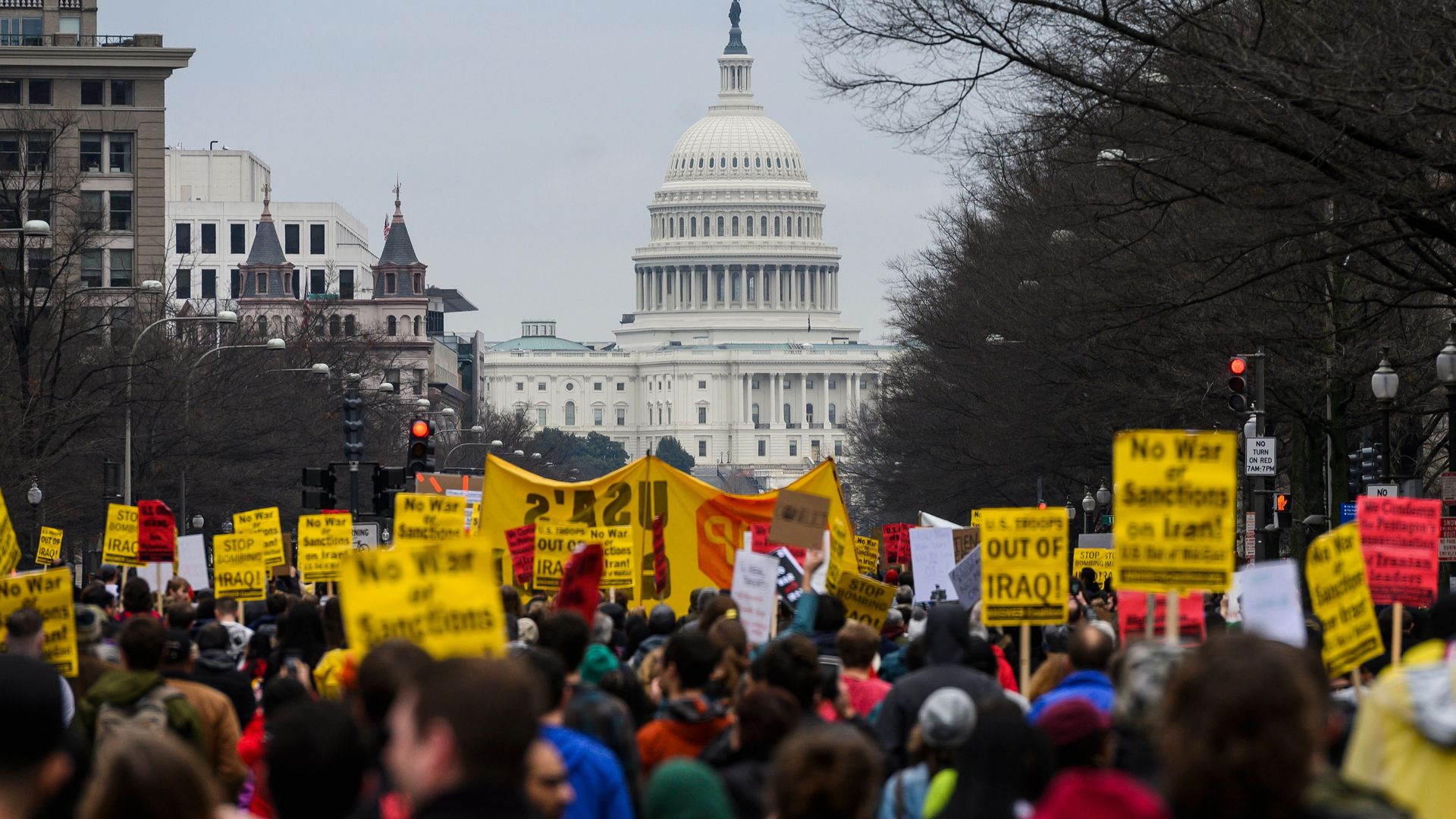
A Conversation with Joe Lombardo
Henning von Stoltzenberg / Junge Welt
Germany (March 20, 2023) — Joe Lombardo is the coordinator of the United National Antiwar Coalition in the United States. This interview was conducted by Henning von Stoltzenberg.
Question: Your coalition called for a demonstration in the US capital Washington, DC last Saturday. What do you ask from those responsible in the White House?
Joe Lombardo: We demand an end to the war in Ukraine and all US wars. The US has deployed its military in countries around the world. They have about 20 times as many foreign military bases as all other countries combined. Their military budget is almost as high as that of all other countries in the world combined.
With our action in Washington, we are calling for an end to US and NATO military aggression around the world. Government funds should be used for human needs, not for war. As we mark the 20th anniversary of the invasion and occupation of Iraq this past weekend, we also demand that all US troops be brought home now.
Question: The United States should also not spend any money on the war in Ukraine. What is your position on sanctions against Russia and other countries?
Joe Lombardo: The US is unlawfully imposing unilateral sanctions on some 42 countries, with the toughest sanctions targeting Russia. We demand an end to all sanctions – against Russia, China, Venezuela, Cuba, Iran and other countries. Most of the world’s governments, including South America, Africa, the Middle East and most of Asia, do not support the sanctions.
Today we are witnessing higher food and gas prices and generally high inflation, while at the same time many countries are entering a recession. This is not due to Russia or the war in Ukraine, but to the sanctions imposed on Russia. Recent US bank failures have also been fueled by this sanction-driven inflation.
Question: Is there much popular support for your demands?
In the US, there is heavy censorship in the media and on social media, as well as a lot of propaganda. People who speak out against the US war, for Palestinian rights and against the US-NATO proxy war in Ukraine are still a minority and their voices go unheard in the media.
Despite this, people’s attitude towards Ukraine is changing. Recent polls have revealed that almost everyone in the US opposes giving more guns and money to the war in Ukraine. In this atmosphere, the anti-war position is growing.
Question: As an anti-war group, you also address the situation of political prisoners. March 18 is traditionally dedicated to solidarity with them.
Joe Lombardo: There are many, many political prisoners in the United States. About five percent of the world’s population lives here, but about a quarter of the world’s prison population. There are currently about 100,000 people in solitary confinement in the United States. International human rights organizations and the United Nations have defined solitary confinement for more than 18 days as torture.
Some of the most famous political prisoners in the US are Mumia Abu Jamal , Leonard Peltier and Aafia Siddiqui. There are still people in Guantanamo detained and tortured. There are so many Muslim political prisoners arrested during the USA’s fake “war on terror.” Many members of the Black Panther Party and other Black groups are still in custody.
Whistleblowers like Daniel Hale, who was jailed for exposing the fact that the US drone program was killing far more civilians than military personnel, and of course Julian Assange, who is due to be extradited to the US to let other journalists know that the government will take action against them if they oppose the US narrative on war.
Question: How do you bring together the issues of peace and the release of prisoners in your political work?
Joe Lombardo: Some were imprisoned for their work for peace, others as part of the US wars, like the prisoners at Guantanamo. We oppose US wars abroad and relate them to US wars against working people and minorities at hom
Posted in accordance with Title 17, Section 107, US Code, for noncommercial, educational purposes.